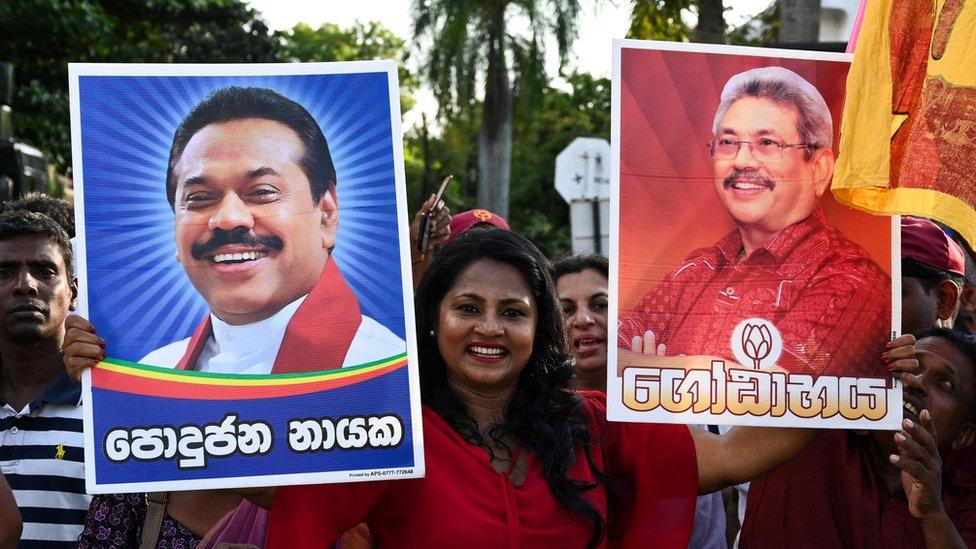Sri Lankan worker at Swiss embassy arrested over kidnap claim
- Published
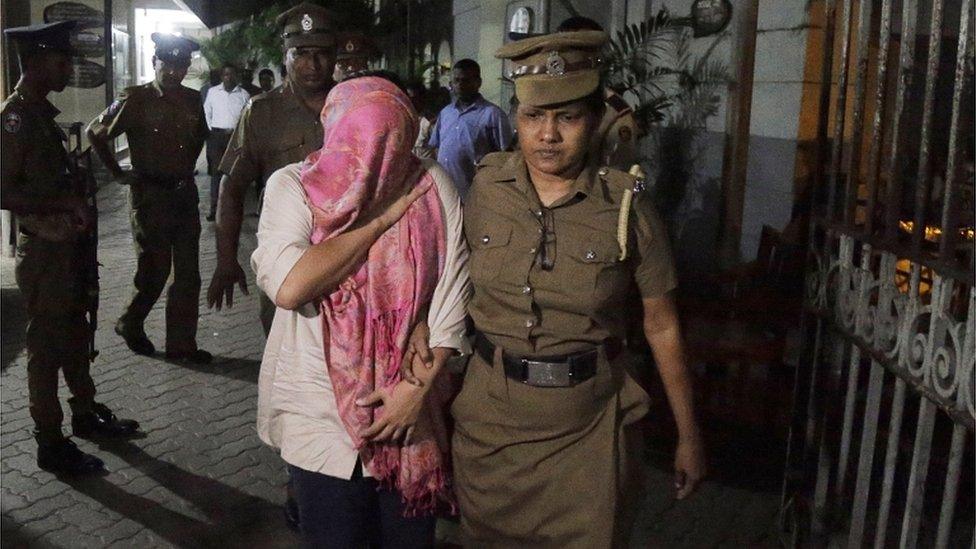
The Swiss embassy employee (L) says the men who kidnapped her forced her to disclose embassy-related information
A Sri Lankan employee of the Swiss embassy in Colombo, who says she was kidnapped, sexually assaulted and forced to disclose information, has been arrested.
Sri Lankan officials allege she made a false accusation.
She said she was taken on 25 November - a day after a police chief reportedly sought asylum in Switzerland.
He had been probing alleged political killings when the newly elected president was defence secretary.
Switzerland summoned the Sri Lankan ambassador at the time of the alleged kidnapping and demanded an inquiry.
What is alleged to have happened to the woman?
Swiss officials said unidentified men detained the woman against her will last month and tried to force her to "disclose embassy-related information".
They said at the time this was "a very serious and unacceptable attack on one of its diplomatic representations and its employees".
Allow X content?
This article contains content provided by X. We ask for your permission before anything is loaded, as they may be using cookies and other technologies. You may want to read X’s cookie policy, external and privacy policy, external before accepting. To view this content choose ‘accept and continue’.

The abductors allegedly forced her to unlock her mobile phone data, which contained information about Sri Lankans who have recently sought asylum in Switzerland, and the names of Sri Lankans who aided them as they fled the country because they feared for their safety after Gotabaya Rajapaksa won the presidency, the New York Times reports, external.
The woman was subsequently questioned over several days by police and subjected to medical tests.
The attorney general's department told the criminal investigations department on Monday that there was no evidence to support her allegation that she had been abducted, subjected to coercion or sexual harassment, Associated Press reports.
Mr Rajapaksa had said the alleged abduction was "a total fabrication".
"Irrefutable evidence such as Uber reports, telephone conversations and CCTV footage point to this fact. The embassy official must have been compelled by some interested parties to bring myself and my government into disrepute. It is not clear why the alleged victims acted in such a manner," he told the Swiss ambassador, according to the presidential office.
Later on Monday, the Swiss foreign ministry (FDFA) criticised what it called a "lack of due process in the case".
"In particular, the FDFA has criticised the 30-hour interrogation to which the employee was subjected over three days despite being in poor health and the public statements by senior Sri Lankan officials questioning her account before the investigations had been completed," it said in a statement, external.
The ministry called on Sri Lanka's judicial authorities to "ensure better protection of its employee's personal rights in any further proceedings, and compliance with national law and international standards".
It said the Swiss ambassador in Colombo had met Mr Rajapaksa on Monday to discuss the case.
What led up to the incident?
Leading police officer Nishantha Silva had fled the country last month, reportedly to seek Swiss asylum. It is widely believed he feared for his safety after the election of Mr Rajapaksa. Mr Rajapaksa, a former wartime defence chief, is accused of human rights abuses, which he denies.
Mr Silva had earlier been involved in official investigations into criminal allegations, including some against Mr Rajapaksa, which he also denies.
The allegations date to the 2005-2015 presidency of Mr Rajapaksa's brother, Mahinda, who was a key figure in the election campaign and has since been appointed prime minister.
How the army finally crushed Tamil Tiger rebels after 25 years of bloody war
The Rajapaksa family is one of the most powerful in Sri Lanka.
Supporters hail Gotabaya Rajapaksa for playing a crucial role in crushing the Tamil Tiger separatist rebels and bringing to an end Sri Lanka's long-running civil war in 2009, when he was defence secretary.
Opponents fear the return of the dynasty could spark a new crackdown on critics.
- Published27 November 2019
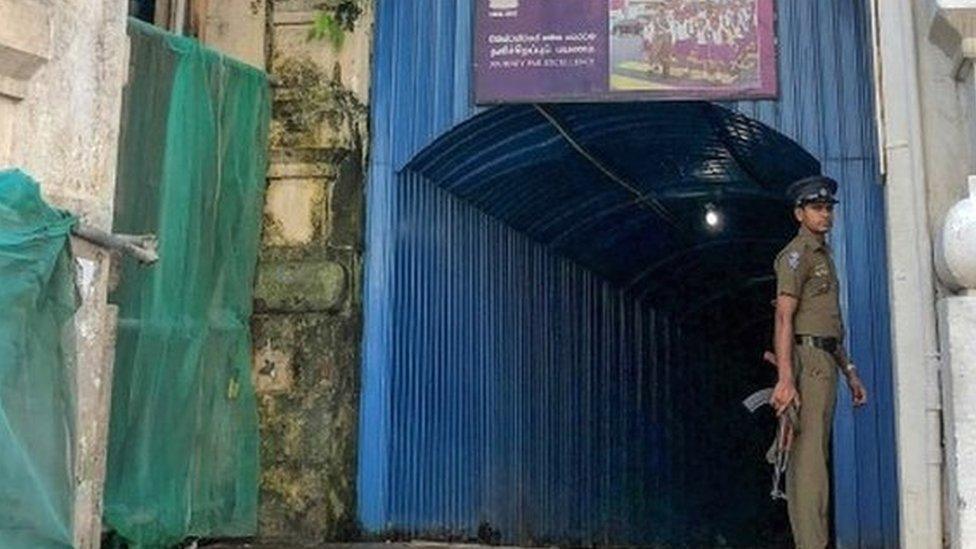
- Published25 November 2019
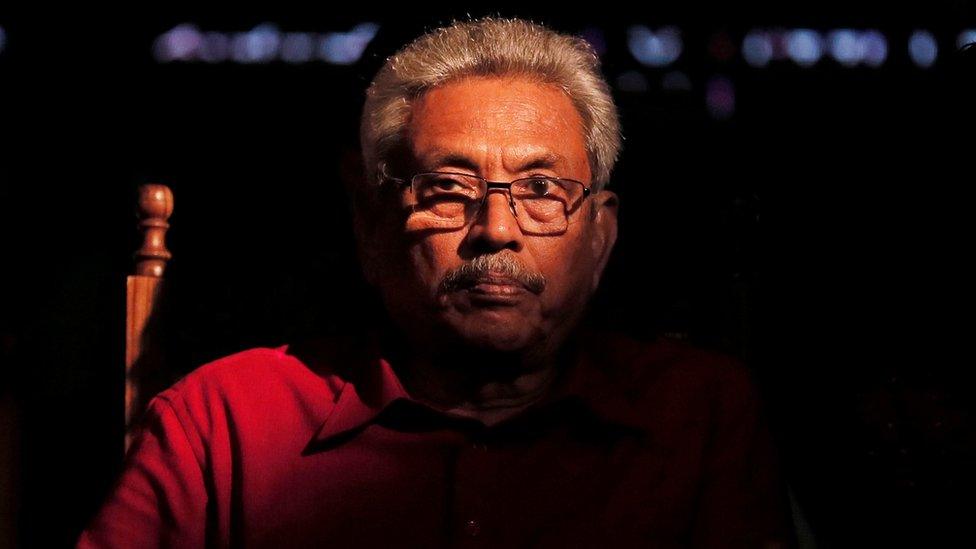
- Published10 September 2019
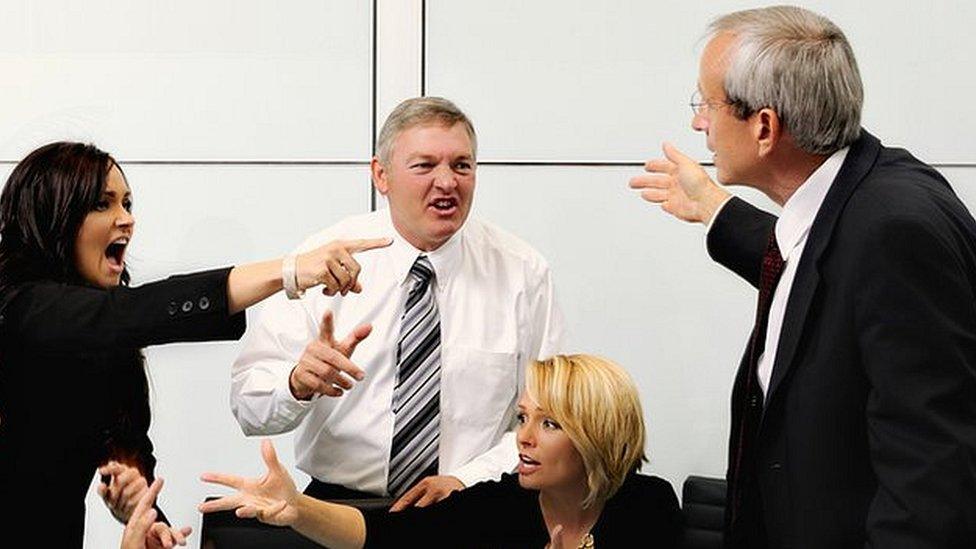
- Published21 November 2019
